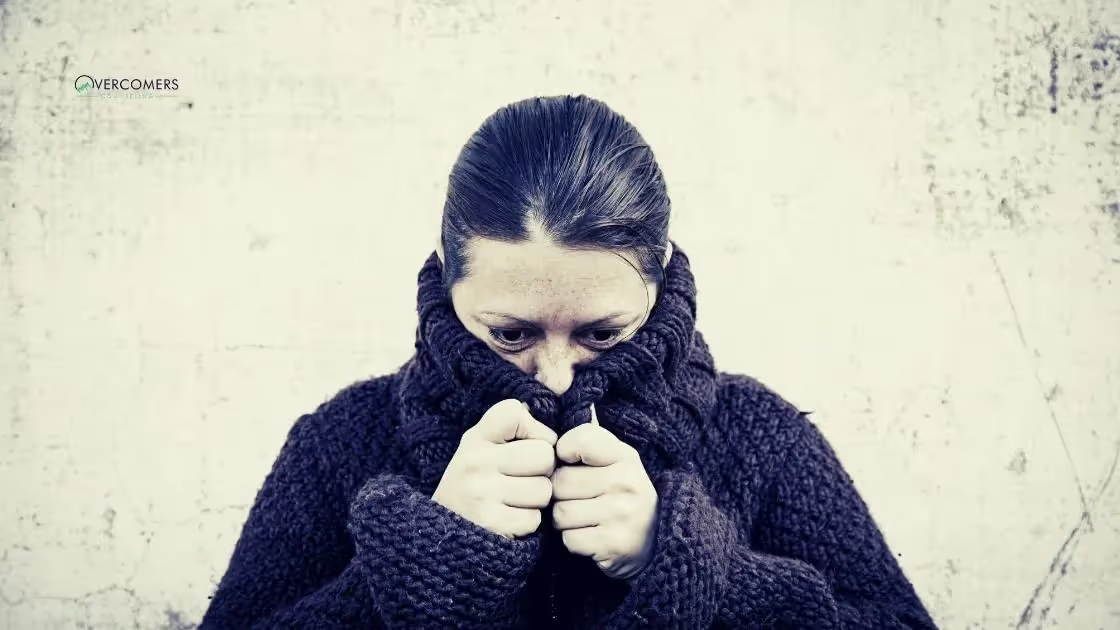Many of us know what it feels like to have a "catastrophizing" thought.They can come in different ways, but often they have a similar theme: something bad...

Many of us know what it feels like to have a "catastrophizing" thought.
They can come in different ways, but often they have a similar theme: something bad is going to happen, and it's going to be awful.
Catastrophizing thoughts can be very upsetting and can make us feel like we are powerless to do anything about the situation.
But the good news is that there are things we can do to overcome these thoughts.
The first step is to become aware of your thoughts.
When you start to feel yourself spiraling into a negative thought pattern, take a step back and observe your thoughts.
If not, remind yourself that these are just thoughts - they are not reality.
The next step is to challenge your thoughts. Once you have identified the negative beliefs that are driving your catastrophizing, it's time to start questioning them.
By critically evaluating your thoughts, you can start to see them for what they really are: irrational and exaggerated.
The third step is to practice relaxation and stress management techniques.
Catastrophizing thoughts often arise when we are feeling stressed or anxious.
By learning how to relax and manage our stress, we can help to prevent these thoughts from taking hold.
There are many different relaxation techniques that you can try, so find one that works for you and make it a part of your daily routine.
Finally, it is important to remember that you are not alone.
This is an important thing to remember when learning how to overcome catastrophizing thoughts.

Catastrophizing thoughts are those that focus on the negative aspects of a situation, magnifying them out of proportion.
They often involve imagining the worst possible outcome, and they can feel very real and convincing.
People who catastrophize may tend to see every setback as a sign that their life is falling apart, and they may feel helpless and hopeless in the face of challenges.
Catastrophizing can lead to anxiety and depression, and it can make it difficult to take constructive action.
If you find yourself catastrophizing, it may be helpful to talk to a therapist or counselor who can help you reframe your thoughts in a more realistic and positive light.
Remember that when learning how to deal with catastrophizing thoughts.
Catastrophizing thoughts are those that magnify the importance of a situation or event to such an extent that the individual believes that the consequences will be catastrophic.
There are several ways in which one can tell if they are having a catastrophizing thought.
Firstly, there is usually an element of exaggeration or overgeneralization present.
For example, the individual may believe that because they failed a test, they will never be successful in their chosen career.
Secondly, catastrophizing thoughts often involve taking a single event and projecting it into the future, assuming that it will have negative consequences for all aspects of life.
Someone who has been diagnosed with a life-altering illness may believe that they will never again experience happiness or good health.
Lastly, catastrophizing thoughts often involve making unrealistic predictions about the future.
The individual may believe that because they made a mistake at work, they will soon be fired from their job.
They might think to themselves: "I'm going to be unemployed and homeless. I'll never be able to support myself."
If you find yourself thinking in any of these ways, it may be indicative of a catastrophizing thought pattern.
If you are concerned about your thought patterns, please consult with a mental health professional.
You might want to consider that when learning how to cope with catastrophizing thoughts.

Catastrophizing thoughts are those that blow a small problem or stressor out of proportion, making it seem like a much bigger deal than it actually is.
These types of thoughts can often lead to anxiety and other negative emotions.
So what causes catastrophizing thoughts to form in the first place?
There are a few different factors that can contribute.
One is perfectionism.
When we strive for perfection in all areas of our lives, we set ourselves up for disappointment when things don't go exactly as planned.
This can lead to catastrophic thinking, as we believe that any mistake or setback is a sign of failure.
Another common cause of catastrophizing is rumination or dwelling on negative thoughts and experiences.
This can fuel anxiety and make it difficult to move on from a stressful event.
If you find yourself catastrophizing, there are some strategies you can use to help calm your thoughts.
For example, practicing mindfulness or challenging your negative beliefs with evidence can be helpful.
If you're struggling to manage your catastrophizing on your own, consider seeking out therapy from a mental health professional.
If you find yourself catastrophizing on a regular basis, it may be helpful to seek professional help.
A therapist can help you understand the thoughts and emotions that are driving your catastrophizing.
They can also teach you skills for managing anxiety and stress.
If you're struggling to cope with a difficult life event, such as a death or divorce, professional help can be especially beneficial.
The information presented in this blog post is meant to be used for informational purposes only and should not be used as a substitute for official medical advice from a licensed professional.
Catastrophizing thoughts are those that magnify the importance of a situation or event to such an extent that the individual believes that the consequences will be catastrophic.
There are several ways in which one can tell if they are having a catastrophizing thought.
If you find yourself thinking in any of these ways, it may be indicative of a catastrophizing thought pattern.
You might need to reach out for professional help if you can't seem to manage your thoughts on your own.
Yes, Medicaid provides insurance coverage for therapy services specifically designed to help individuals struggling with anxiety, depression, and other mental health conditions.
It's important that you feel comfortable discussing personal matters with your therapist in order to open up and get more out of therapy sessions; therefore finding someone who meets certain criteria like experience level, expertise areas, and personality is key when selecting a therapist who can give meaningful feedback about how best handle issues related to anxiety or other mental health concerns.
Other activities which have been found helpful in reducing both immediate feelings of anxiousness and long-term anxieties associated with chronic disorders include yoga, journaling, nature walks, art therapy, volunteering, and other low-stress activities. Additionally, developing a healthy lifestyle incorporating adequate sleep, physical activity, and nutritious meals can help reduce overall stress levels.
To reduce your anxiety, you can practice relaxation techniques such as deep breathing, progressive muscle relaxation, guided imagery, and mindfulness practices. Additionally, regular exercise has been found to be beneficial in managing stress and improving mental health.
Addressing anxiety is crucial because it can significantly impact your quality of life and overall well-being. Left untreated, anxiety can lead to more severe mental health issues, relationship problems, and difficulty functioning in daily life.
The duration of anxiety counseling varies for each individual, depending on the severity of their anxiety and their progress in therapy. Our therapists will regularly assess your progress and adjust your treatment plan as needed.